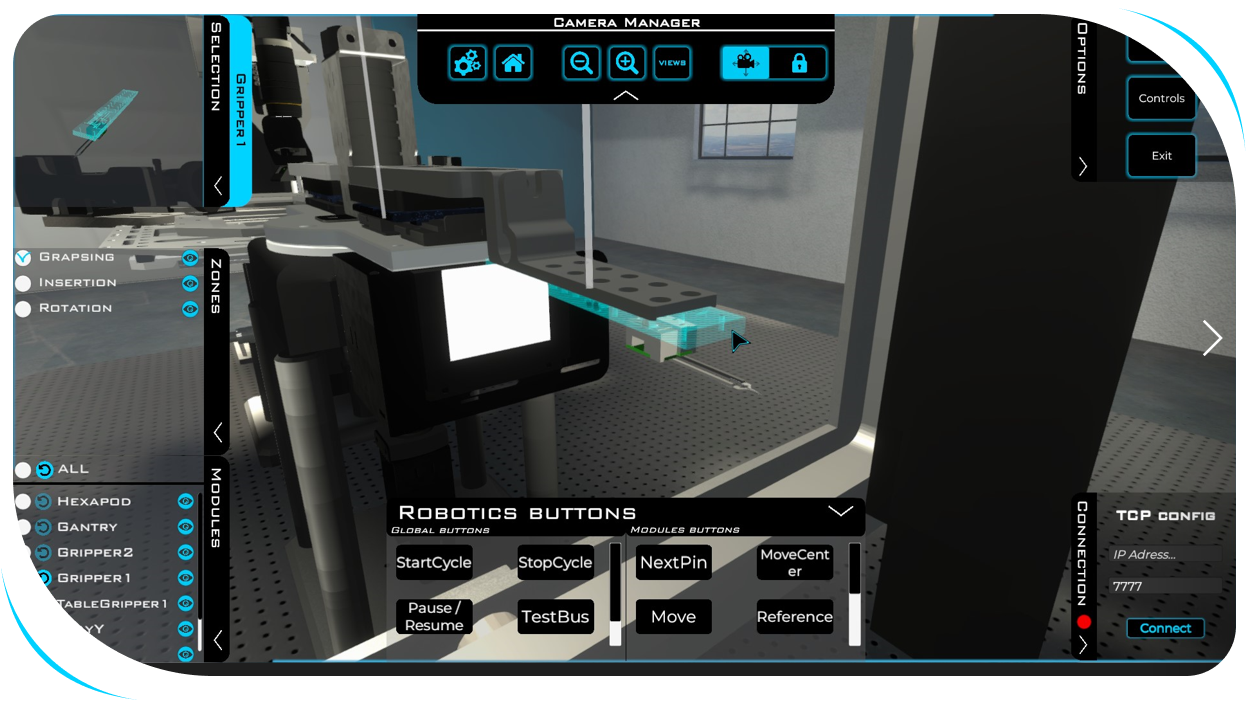Our ambition is to develop innovative assembly systems leading to real technological breakthroughs.
Due to this, we are actively involved in several collaborative industrial research projects.
The goal is to prepare the technical foundations for the solutions we will offer you tomorrow.

Our motivations :
→ to remain at the forefront of research to continue to provide a quick response to our customers’ technological challenges
→ to develop partnerships and collaborations with key players in fundamental research
→ to develop the skills of our researchers and engineers, who are constantly faced with new challenges
→ to promote high-potential research work at the industrial level.


Co-funded by BPI France.
As part of BPI France’s call for projects in Offer for robots and intelligent machines of excellence (“Offre de robots et machines intelligentes d’excellence”) financed by the “France 2030” investment plan.
Photonic systems (systems that use light rather than electricity to perform digital functions) are on the brink of a planetary revolution in the 21st century, just as electronics were in the 20th century. But where electronics found its Holy Grail with silicon technology, photonics is still looking for its own. To expand photonic technologies, strategic objectives need to be addressed first such as miniaturisation, standardisation and manufacturing cost minimisation.
PhotonScale aims to facilitate the assembly and packaging (90% of production costs) of ultra-miniaturised photonic systems using robotic platforms adapted to this technology, already verified at prototype scale.
This project will build these platforms for industrial manufacturing and equip these very platforms with cutting-edge modules and processes dedicated to current and incoming photonics challenges.

Optical fiber insertion.

Collimator manipulation and mounting.